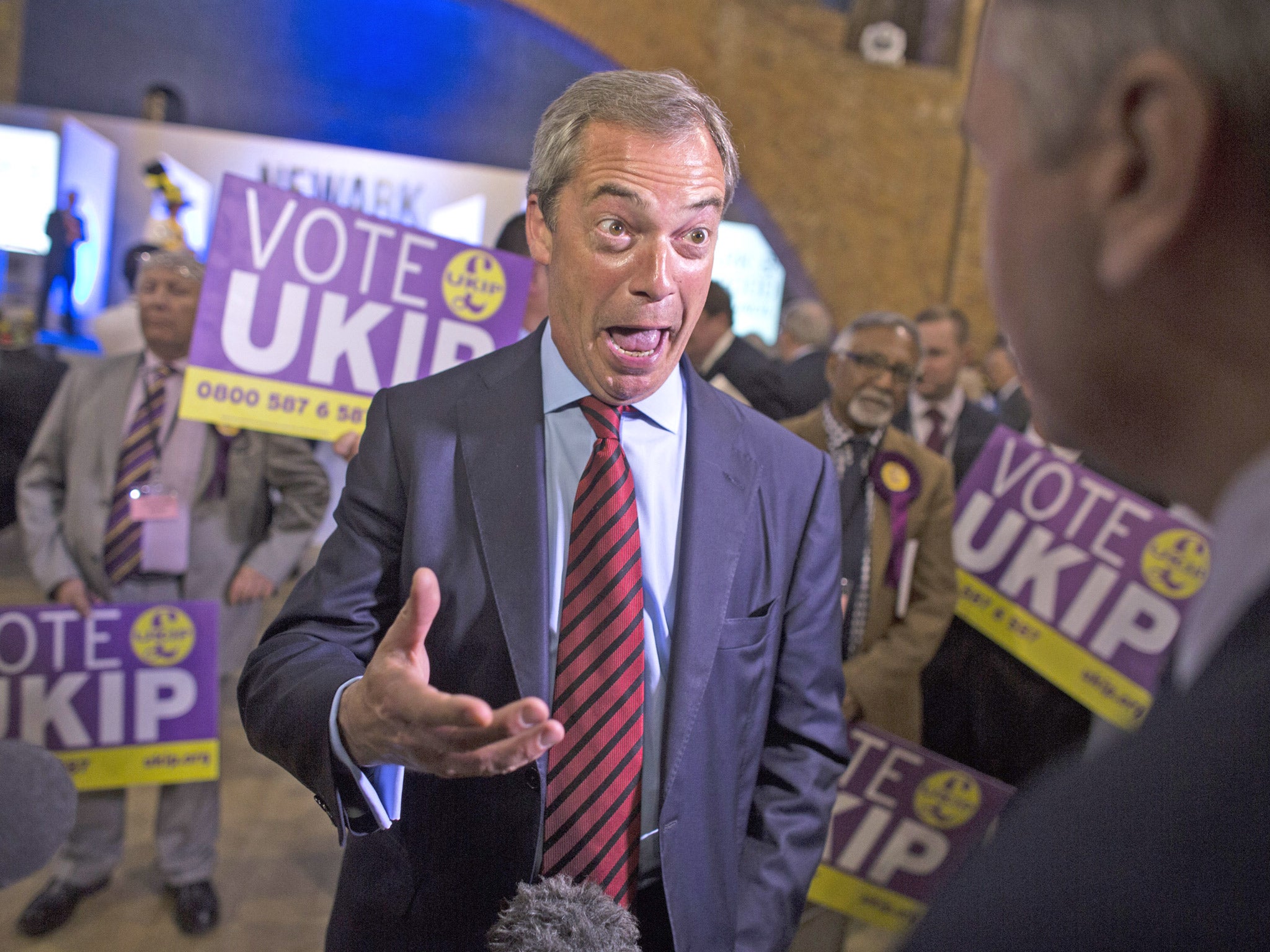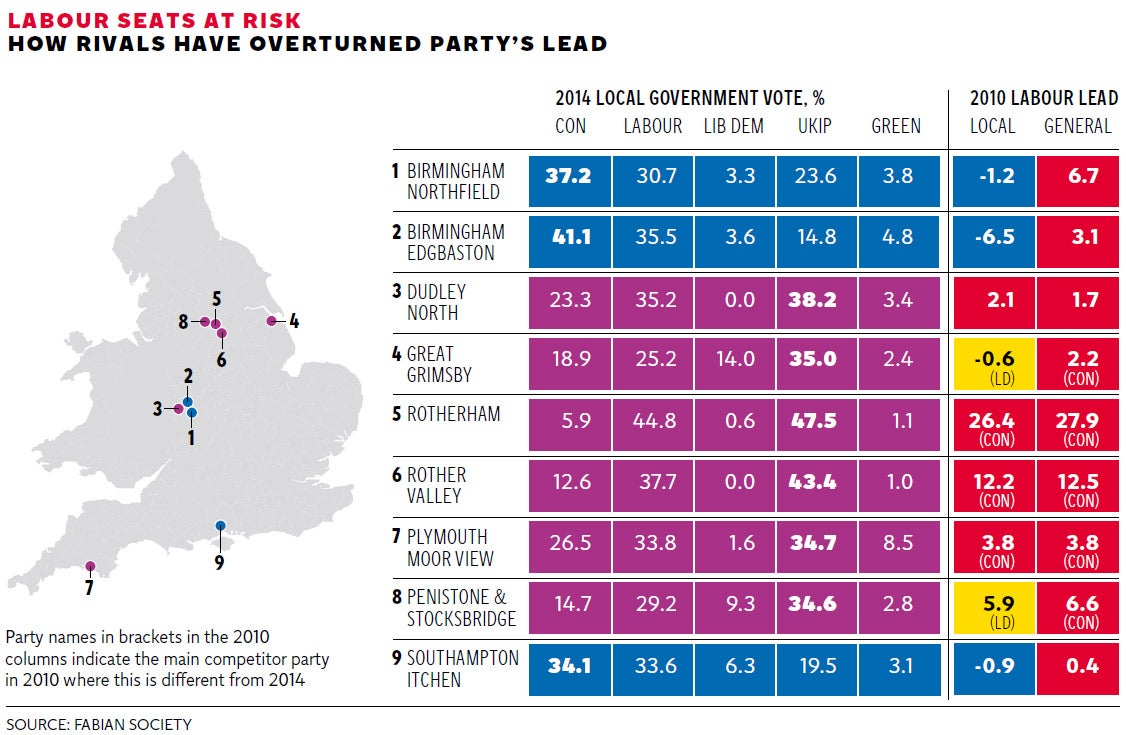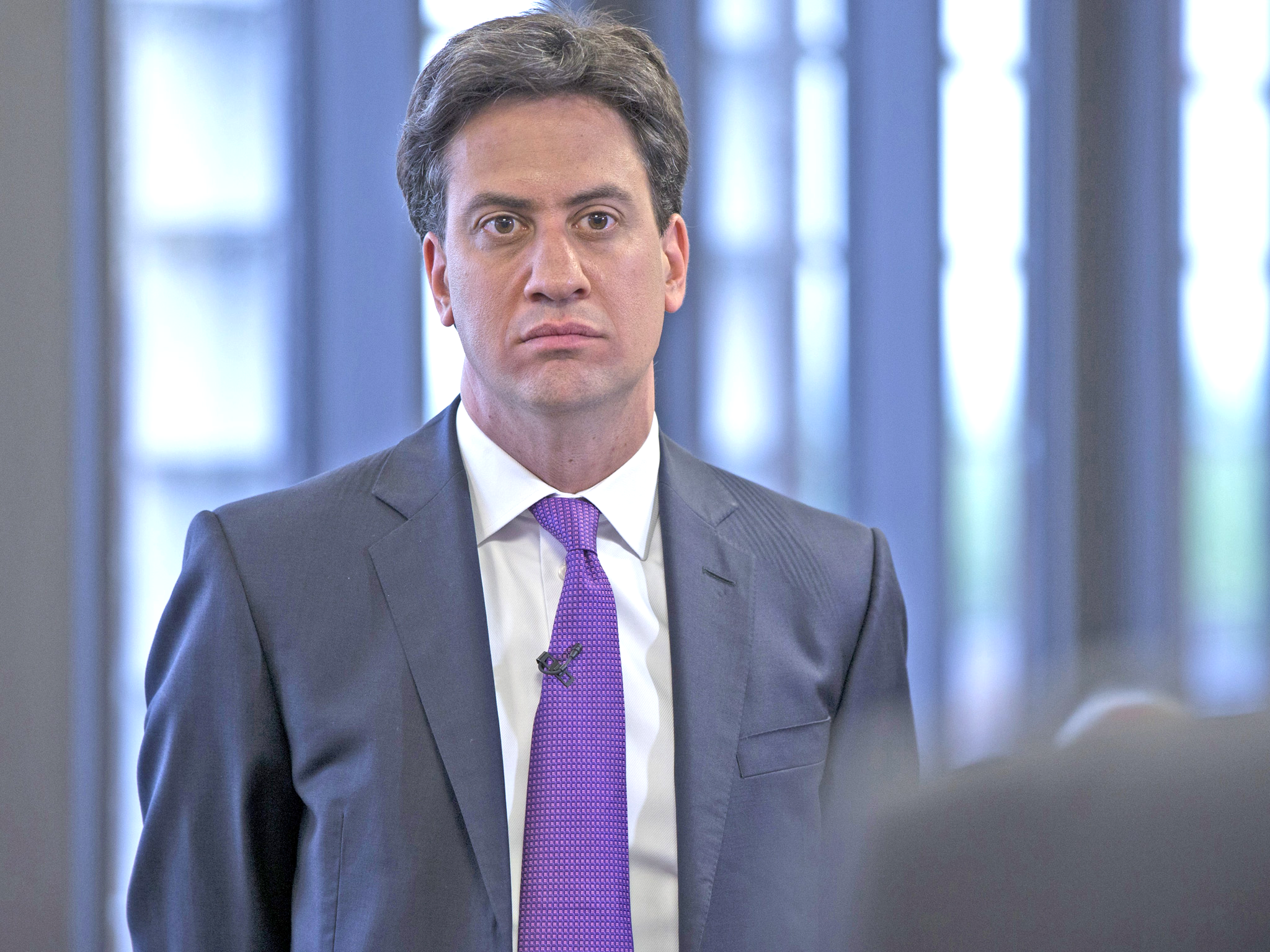Exclusive: Ukip surge is costing Labour as many votes as Tories, research suggests

Ed Miliband has been warned that Labour’s declining support among working class voters, many of whom are defecting to Ukip, poses the biggest threat to his party’s prospects of winning next year’s general election.
A study by the Labour-affiliated Fabian Society found that a gradual drop in support among blue-collar workers since 2005 has now been exacerbated by the rise of Nigel Farage’s party, putting Labour’s general election strategy in jeopardy.
Its research found that Labour’s lead in nine parliamentary seats would be lost if the results of last month’s council elections were repeated next year. Six seats would go to Ukip and three to the Tories, who would overtake Labour as Ukip eats into its support. The Fabians fear this “Ukip effect” could deny Labour victory in dozens of the crucial Lab-Con marginals that will decide the election.
The analysis, seen by The Independent, says Labour’s view that Ukip was a “Tory problem” has been “blasted” by last month’s Euro and council elections, and that it is hurting Labour and the Tories almost equally. Although the Fabians believe Mr Miliband can still win next year’s election, they warn that he will do so only by winning back the blue-collar workers.
The report concludes bluntly: “If elections are about momentum, then the Conservatives seem to have more reason for optimism than Labour. Labour will need to up its game to have a chance of a majority in 2015.” It warns that relying on working-class supporters to achieve about 35 per cent of the vote “will be insufficient to win.”

Click HERE to view full-size version of graphic
Marcus Roberts, the Fabians’ deputy general secretary, said: “The greatest threat to Ed Miliband’s hopes is the loss of blue-collar support. The Fabians have laid out how Labour can build a coalition of 2010 loyalists, ex-Lib Dems, new and non-voters and a few Conservative converts to win. But declining blue-collar support eats into its loyalist base and, crucially, the potentially sympathetic 2010 non-voters Miliband can’t do without.”
He added: “Labour needs a radical manifesto that deals with blue-collar concerns on issues like immigration and welfare but which also inspires broad public support with ideas like common ownership of railways.”
Groups where Labour is losing ground include transient single people in routine jobs; low income families; comfortably-off industrial workers; middle-aged working couples with young children and older couples in low value housing. “While many retain their loyalty to Labour, a sizeable proportion is moving to Ukip,” said Ian Warren, an election data analyst who contributed to the Fabians’ research. “In many constituencies that Labour is targeting in 2015, almost half of all households are comprised of these groups… when asked whether they are comfortable living in close proximity to people from different cultures and backgrounds, they are more likely to say no.”

Mr Warren found that Labour had seen its vote fall among the poorest since 2005 – including childless tenants in social housing; older tenants in low rise social housing; vulnerable young parents in need of state support. “These are core voters with repulsion for both the Conservatives and the Lib Dems. They are using Ukip as a means to exercise their anger.”
Tom Watson, Labour’s former general election co-ordinator, who has seen the research, said: “This must be listened to at the top of the party. I think there is an added problem of the density of former special advisers who speak for Labour in a particular tone that is off-putting. We need more working-class voices at the top of the party.”
He said it was very important for the “Blue Labour” agenda championed by Lord (Maurice) Glasman and Jon Cruddas, the policy chief, which is based on “faith, flag and family”, to be an element in its election manifesto.
A Labour source said: “In the local elections we won in 70 per cent of the key marginals. A similar strike-rate in a general election would deliver a Labour victory. But Ed Miliband has been clear to say that we must not underestimate the scale of discontent across the country. He will not offer false promises on immigration and Europe like David Cameron – or false solutions like those of Ukip which would make lives of working people worse.”
Join our commenting forum
Join thought-provoking conversations, follow other Independent readers and see their replies
Comments
Bookmark popover
Removed from bookmarks